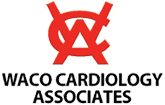A heart attack, also known as an MI for myocardial infarction, occurs when the blood supply to a part of the heart muscle stops or is seriously decreased. The decrease or stoppage happens when there is a blockage in one or more of the coronary arteries that take blood to the heart muscle. This usually occurs due to an accumulation of plaque, known as arteriosclerosis (or atherosclerosis). Plaque can break off and cause a blood clot which can plug the artery. This causes the heart attack. The blockage can also be called coronary thrombosis or coronary occlusion. If blood stops coming for more than a few minutes, the muscle cells are permanently damaged and die. This damage to the heart muscle can cause death or seriously disable the patient, depending on the extent of the damage. Most hospitals have special protocols to treat heart attack victims as quickly as possible by doing an emergency angiogram with an angioplasty or stent to open up the blocked artery. There are several known risk factors that increase the risk of heart attack. Your physician or a preventive cardiologist can help identify if you are at increased risk. Tests can help identify if a patient has plaque in the coronary arteries (coronary artery disease). Lifestyle modification and medications as indicated can reduce the risk of heart attack. So heart attacks are now often preventable. Symptoms of a Heart Attack Symptoms of a heart attack can vary greatly from person to person but some of the most common symptoms are: Discomfort (pain, pressure or heaviness) in the middle of the chest which can spread to the neck, arms, back or jaw. Sometimes, pain may be felt only in the back, neck, jaw, or arms and not in the chest. Gas-like pain or pressure in the lower chest or stomach which often is mistaken for indigestion. The discomfort is similar to angina, but is usually more severe, lasts longer, and does not improve with rest or nitroglycerin. Nausea or vomiting which can be mistaken for food poisoning or the stomach flu. Shortness of breath Lightheadedness or dizziness. Anxiety, sense of impending doom, restlessness, or perspiration Palpitations Loss of consciousness (sometimes this is the first symptom) It is important to note that around one-third of people who have heart attacks do not have any chest pain. This occurs more often in women, non-Caucasian individuals, diabetics, or the elderly. About two-thirds of the time, people who have heart attacks experienced chest pain, shortness of breath, or fatigue a few days or even weeks before the attack. In people with prior angina, they often find that it takes less physical activity to trigger the anginal pain. Any change in angina should be taken very seriously and brought to your cardiologist’s attention.
Helping a Victim of a Heart Attack
Half of the deaths from heart attack occur in the first 3 to 4 hours after the onset of symptoms, so it is important to recognize the warning signs. If you think that you or someone in your presence is having a heart attack, call 9-1-1 IMMEDIATELY! Every minute you delay can result in more damage to the heart muscle. We have always recommended that you call 911 before calling your cardiologist. We would rather there be a false alarm or something not serious as the stakes are too high to miss the opportunity to intervene as soon as possible in a heart attack victim. Having the victim chew an aspirin after the paramedics have been called may help reduce the size of the blood clot. Helping a Victim of Sudden Cardiac Death Call 9-1-1 IMMEDIATELY! Calling 911 first is critical to increase a victim’s chance of survival. Begin cardiopulmonary resuscitation or CPR. CPR can double or triple a cardiac arrest victim’s chances of survival. Utilize an automated external defibrillator (AED) if one is available. Follow the instructions provided by the unit. Many public places such as airports and shopping malls now have AEDs.



